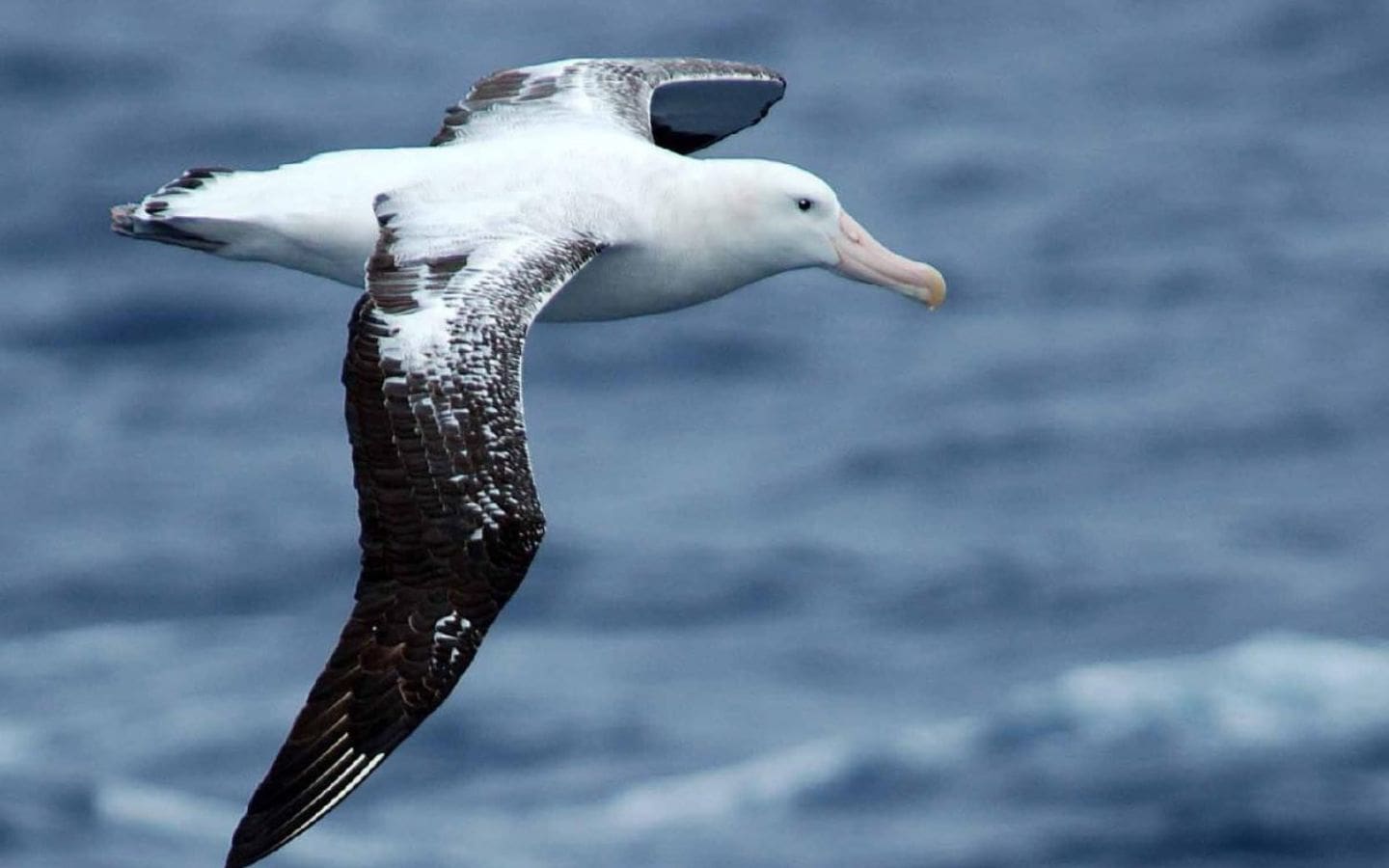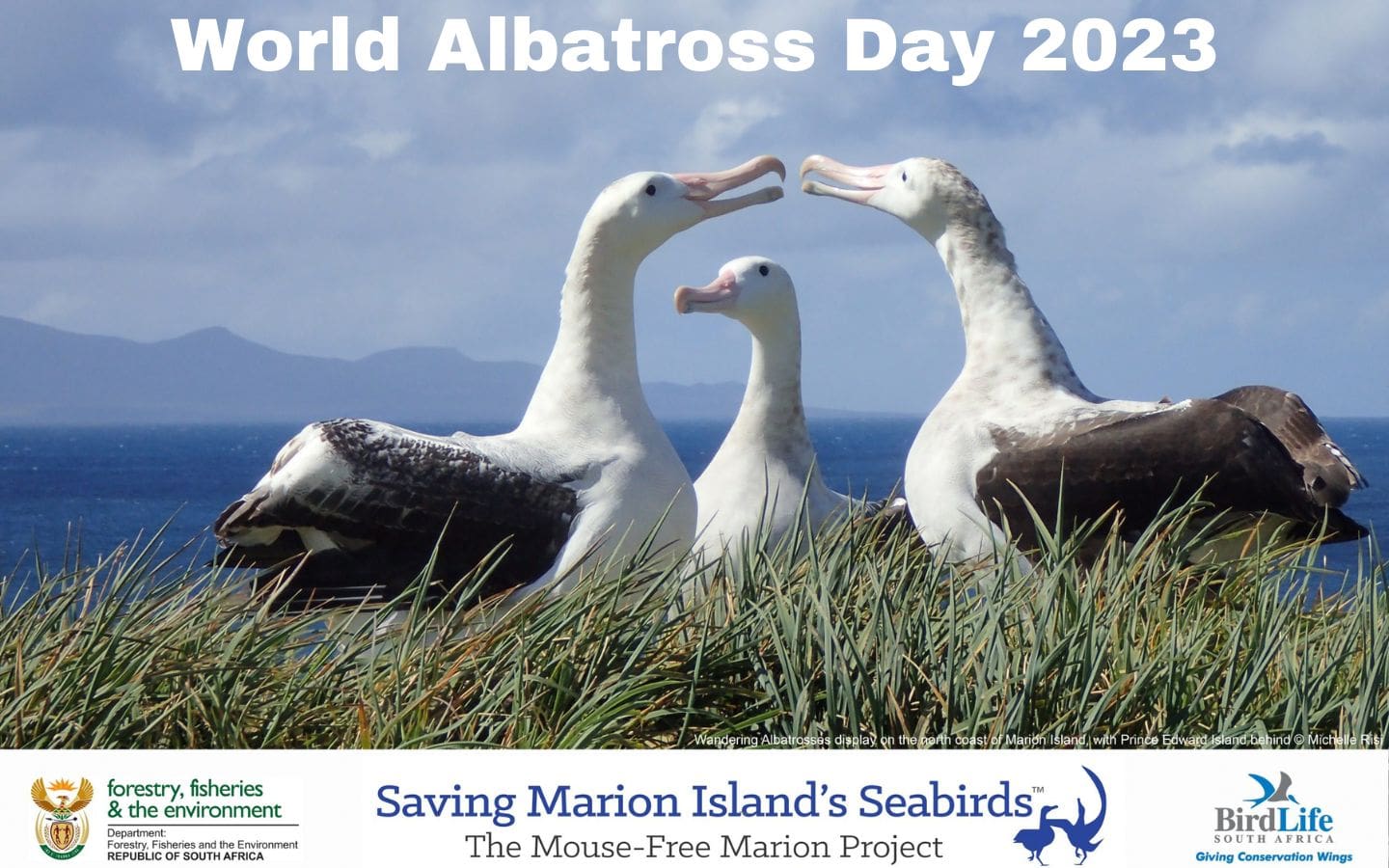On 19th of June, the world comes together to celebrate World Albatross Day, an annual event dedicated to raising awareness about these magnificent seabirds and the conservation challenges they face. World Albatross Day serves as a crucial platform to educate and inspire action to protect these iconic ocean wanderers. With their graceful flight and important ecological role, albatrosses deserve our attention and concerted efforts for their survival.
South Africa is a long-standing Party to the International Agreement on the Conservation of Albatrosses and Petrels (ACAP). The agreement was brought into existence on 1 February 2004. The day also falls on the date of the signing of the Agreement 22 years ago. ACAP has chosen the theme “Plastic Pollution” to mark the fourth World Albatross Day, to be celebrated on 19 June 2023. This follows the inaugural theme “Eradicating Island Pests” in 2020, “Ensuring Albatross-friendly Fisheries” in 2021, and “Climate Change” last year in 2022.
Albatrosses close to home

The magnificent Wandering Albatross soaring over the Southern Ocean skies. Image credit: Antarctic Legacy of South Africa Archive cc
Multiple species of albatross are found across the Southern Ocean. This includes Antarctic, sub-Antarctic and subtropical waters. These albatrosses breed on sub-Antarctic and Antarctic islands including South Africa’s sub-Antarctic Marion Island. Marion Island holds significant breeding populations of four albatross species – the Wandering Diomedea exulans, Grey-headed, Light-mantled Phoebetria palpebrata and Sooty Phoebetria fusca. In addition to this, two other species of albatrosses have been seen ashore on Marion Island – Black-browed and Indian Yellow-nosed Thalassarche carteri. To read more about the “other” two species of albatrosses recorded from Marion Island as uncovered by one of our researchers Kim Stevens, click here.
The Challenges Facing Albatrosses
Albatrosses face a range of challenges that threaten their survival. One of the most pressing issues is longline fishing, where albatrosses can become accidentally caught on fishing hooks, leading to injury or death. Pollution, habitat destruction, climate change, and invasive species on breeding islands also pose significant risks to their populations. World Albatross Day sheds light on these challenges and promotes measures to mitigate their impact. The pressing threats to Albatrosses in the Southern Ocean include invasive species on breeding islands, most notably, the house mice on Marion Island. Introduced to Marion Island by sealers in the early 19th century, the house mice have been inflicting devastating impacts on the ecology of the island, including killing its native seabirds.
Conservation Efforts and Awareness
The Mouse-Free Marion Project is a registered non-profit company in South Africa, established to eradicate the invasive albatross-killing mice on Marion Island. The project was initiated by BirdLife South Africa and the South African Department of Forestry, Fisheries and the Environment (DFFE). Upon successful completion, the project will restore the critical breeding habitat of over two million seabirds, many globally threatened, and improve the island’s resilience to a warming climate. For more information or to support the project please visit mousefreemarion.org.
May 2023: Barbara Creecy, Minister of Forestry, Fisheries, Forestry and the Environment, confirms government support for the Mouse-Free Marion Project in her budget speech.
What can you do?
In keeping with this year’s theme for World Albatross Day “Plastic Pollution”, as an individual you can participate by reducing plastic pollution, organising or joining local beach cleanups, where you can help remove litter and prevent it from reaching the oceans, including minimising the use of single-use plastics. Education plays a vital role in driving positive change for albatross conservation. Increase your understanding of albatross biology, their unique adaptations, the threats they face, and the ecological importance they hold in marine ecosystems by reading some of these selected publications here. By raising awareness and fostering partnerships, we can work collectively to safeguard albatross populations and their habitats.
Let us unite in our efforts to protect these majestic ocean wanderers and ensure a future where albatrosses continue to grace our oceans for generations to come.
YOU CAN HELP SAVE MARION ISLAND’S SEABIRDS
Contribute to Saving Marion Island’s Seabirds! Click here!
Images: The Mouse-Free Marion Project (text added to MFM poster) and Antarctic Legacy of South Africa (ALSA)
Rabia Mathakutha, South African Polar Research Infrastructure (SAPRI DPS Node), 19 June 2023








